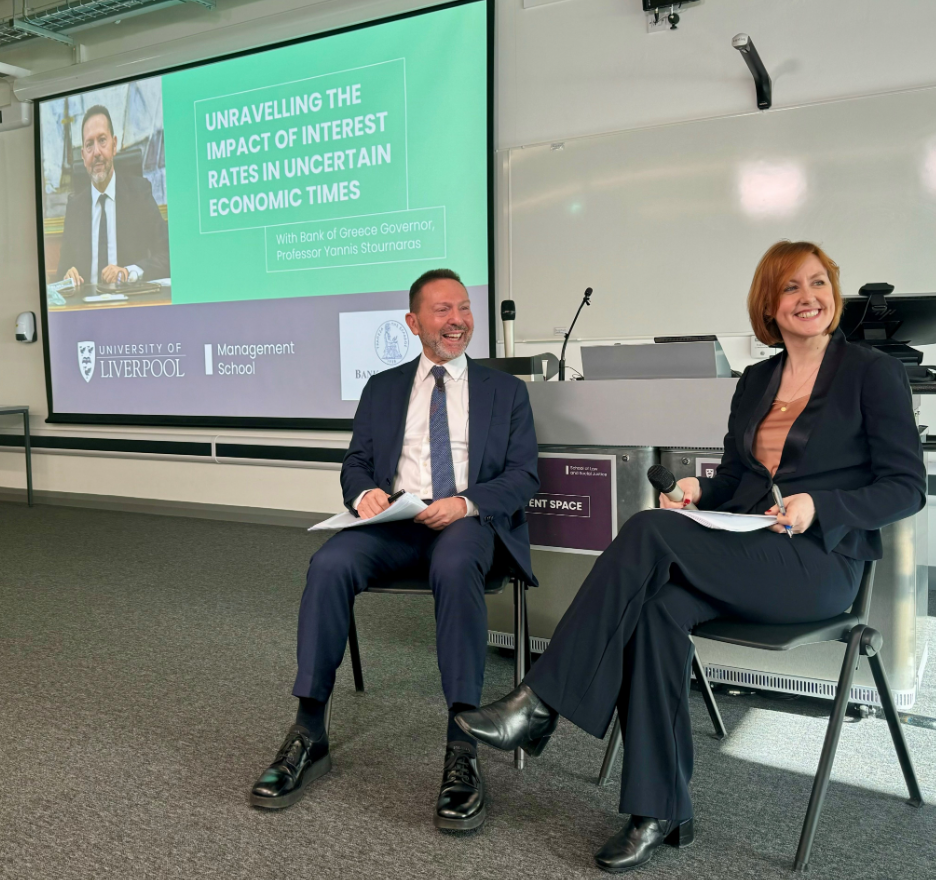Bank of Greece Governor Reflects on Interest Rates in University of Liverpool Speech
Governor of the Bank of Greece and European Central Bank (ECB) Governing Committee member, Yannis Stournaras, has reiterated his suggestion that a cut in interest rates will arrive no earlier than June this year.
In a speech at the University of Liverpool on Monday, 26 February, Mr Stournaras stated that the ECB needed more data and more evidence that inflation would go down before cutting interest rates.
He said that any action on interest rates shouldn’t be taken any later than this June commenting, “I don’t believe we are going to end up with higher inflation permanently.”
Chairing the question and answer session following his speech, Claire Jones, Acting US Economics Editor of the Financial Times, asked how low it would be possible for interest rates to fall.

Governor of the Bank of Greece, Yannis Stournaras, with Claire Jones of the Financial Times
Mr Stournaras suggested around 2% towards the end of 2025 would be realistic but called for “realism and gradualism” in the ECB’s approach. He suggested that there were “too many unknown unknowns” and using judgement, not just models was essential in making monetary policy as “monetary policy is not ideology.”
Mr Stournaras said that the ECB currently faces bigger problems than the US Federal Reserve, citing fragmentation in the euro areas banking system and the legacy of the region’s sovereign debt crisis.
The Governor outlined the pros and cons of the low and even negative interest rates which had persisted across Europe between 2010 and 2021, concluding that, on balance the ECB’s monetary policy “succeeded in escaping deflation, avoiding a recession and, at the same time, it has strengthened the functioning of the financial system,” adding that “the euro area financial system has emerged much stronger than before the crisis.”
Reflecting on the past, Mr Stournaras, who served as Minister of Finance in Greece, from July 2012 to June 2014, underlined the importance of Greece remaining in the Eurozone despite pressures to leave during the financial crisis, stating that exiting the Euro would be “the definition of disaster” and “lead to civil war.”
Discussing lessons learned from the financial crisis, he said that a unified crisis management framework was needed across Europe as ““The authorities should prepare for a rainy day well in advance.”
Professor Costas Milas from the University of Liverpool Management School who organised the event said: “We were truly privileged to have Yannis and Claire at the University of Liverpool with us for such an informative and lively discussion about the past, present and future of European monetary policy.”

